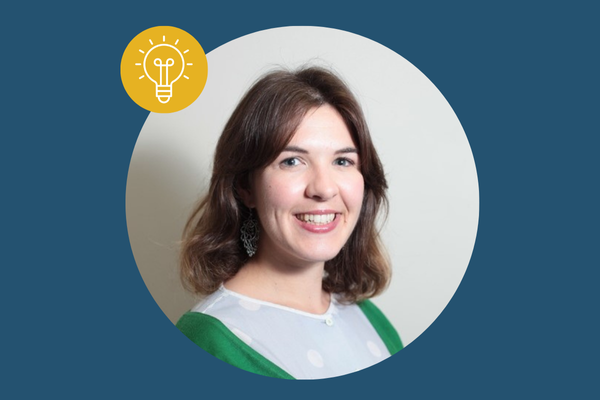Tell us about the innovation. What does it do, how does it help, who does it help and why is it important?
Daye is a healthcare startup revolutionising women’s health, particularly menstrual health and diagnostics. It aims to fill gaps in gynecological care with innovations like the Diagnostic Tampon, enabling early human papillomavirus (HPV) and sexually-transmitted infections (STI) screening through non-invasive, at-home sample collection. This product enhances accessibility and addresses common screening barriers like appointment difficulties, fear, and embarrassment. By incorporating diagnostic functions into a familiar menstrual product, Daye promotes early detection and prevention of HPV-related complications and cervical cancer. Committed to sustainability, inclusivity, and patient empowerment, Daye’s approach marks it as a leader in gynecological health innovation.
Which health innovation networks have you been supported by?
We’ve been supported by a number of Health Innovation Networks, including Health Innovation Wessex. We’ve received valuable guidance on navigating the NHS evaluation framework and connecting with key stakeholders in women’s health services. The Health Innovation Network has provided mentorship on our value proposition development and helped establish connections with clinical champions who understand the potential impact of our HPV self-sampling solution.
What are the plans/next steps for this innovation?
Our immediate plans include completing our clinical validation studies to demonstrate the efficacy and reliability of the Diagnostic Tampon as an HPV screening tool. We’re currently designing pilot implementations in select NHS Trusts to gather real-world evidence on patient acceptance, clinical workflow integration, and health economic benefits.
Following successful pilots, we aim to secure NICE approval and establish a clear commissioning pathway for nationwide implementation. We’re also developing training resources for healthcare providers and patient education materials to support seamless adoption. Our roadmap includes exploring additional biomarker detection capabilities beyond HPV to expand the diagnostic potential of our platform.
What’s your biggest piece of learning from innovating in the NHS?
The most significant learning has been understanding that successful innovation within the NHS requires addressing multiple stakeholder needs simultaneously. Clinical efficacy alone isn’t sufficient – innovations must demonstrate clear pathways to implementation, cost-effectiveness, and alignment with existing care protocols.
We’ve learned the importance of early engagement with both clinical champions and operational leaders to identify potential barriers and develop solutions collaboratively. Building relationships across the NHS ecosystem and understanding the nuanced decision-making processes at both local and national levels has been crucial. Patient-centered design that considers the real-world experiences of diverse women has strengthened our innovation and its potential for meaningful impact.
What are your hopes for the future?
We hope to see the Diagnostic Tampon become a standard screening option within the NHS, dramatically increasing screening participation rates, particularly among underserved populations. Our vision includes helping to close the screening gap exacerbated by the COVID-19 pandemic and contributing to the WHO’s goal of eliminating cervical cancer.
We aspire to expand our technology to detect additional gynecological conditions, creating a comprehensive women’s health screening platform that empowers women with greater knowledge and control over their health.
Ultimately, we hope to demonstrate how innovative approaches to familiar products can transform healthcare delivery and outcomes, inspiring further innovation in women’s health.
What’s the best part of your job?
The most rewarding aspect is knowing our work has the potential to save lives by making cervical cancer screening more accessible and acceptable to all women. Collaborating with passionate clinicians, researchers, and patient advocates who share our commitment to improving women’s healthcare is incredibly fulfilling. The opportunity to challenge traditional approaches to screening and create solutions that respect women’s dignity, autonomy, and diverse needs drives our team daily. Seeing the positive response from women who appreciate the convenience and privacy of our approach reinforces the value of our innovation. Being at the intersection of scientific advancement and practical implementation allows us to contribute meaningfully to both clinical practice and public health.
What are your three pieces of advice for budding health innovators?
- Centre the patient experience in every aspect of your innovation – understand their lived experiences, barriers to care, and preferences through continuous engagement and co-design. This patient-centered approach will strengthen your solution and create authentic advocates for your innovation.
- Build relationships across the healthcare ecosystem early and consistently. Identify and engage with clinical champions, operational leaders, and patient groups who can provide insights, guidance, and support throughout your development journey. These relationships will be invaluable when navigating implementation challenges.
- Develop a robust evidence strategy that addresses clinical, operational, and economic considerations simultaneously. The NHS requires comprehensive evidence of impact, and planning your validation studies to capture multiple dimensions of value will accelerate your path to adoption. Be prepared to demonstrate how your innovation fits within existing care pathways while improving outcomes and efficiency.

Tell us about the innovation. What does it do, how does it help, who does it help and why is it important? Daye is a healthcare startup revolutionising women's health, particularly menstrual health and diagnostics. It aims to fill gaps in gynecological care with innovations like the Diagnostic Tampon, enabling early human papillomavirus (HPV) and [...]

Tell us about the innovation. What does it do, how does it help, who does it help and why is it important? My Clinical Outcomes (MCO) is a patient and clinician-facing web-platform for remote, long-term collection and real-time analysis of patient-reported outcome measures (PROMs) in routine clinical practice. PROMs can provide valuable information about [...]

A local stories blog by Dr Nicola Reynolds. Nicola is Deputy Clinical Director for Mental Health at Health innovation Network South London, and Principal Clinical Psychologist / Clinical Lead for Integrated Neurodevelopmental service at Oxleas NHS Foundation Trust. She shares more about her role for Mental Health Awareness Week. The demand on mental health services [...]





